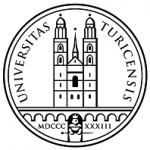项目介绍
About the course
You will spend up to four years in one of the department’s many research groups, working on a project supervised by the group’s principal investigator. During this period you will have the opportunity to take part in the comprehensive training programme organised for graduate students.
After a very short induction period of one or two weeks, during which some basic training is provided, you will start a research project in your supervisor’s laboratory.
There are a number of key stages in the research programme.
- Within a month of starting, you will meet with your supervisor and graduate advisor to finalise your project and agree on an initial programme of research.
- Within the first three months, you will complete an analysis of your training needs with your supervisor.
- Within the first six months you are expected to complete a literature review on a topic relating to your area of research.
- After one year you will apply to transfer to DPhil status. (See Assessment)
- You will apply to confirm your DPhil status by the end of your third year. (See Assessment)
- The final stage is submission of your DPhil thesis, which needs to be done within four years.
Most laboratories have weekly meetings where members present and discuss their research results with other members of the laboratory. You will also regularly present your work in progress seminars, which are attended by other research groups working in related areas. Further support is available from your college advisor.
Whilst working on your research project you will participate in a comprehensive, flexible skills training programme which includes a range of workshops and seminars in transferable skills, generic research skills and specific research techniques. There are also numerous seminars and lectures by local and visiting scientists and you are provided with many opportunities to meet leading scientists.
There are a wide range of events organised for DPhil students. All students participate in an annual graduate students’ symposium, which is attended by the entire department. Student contributions are carefully evaluated and prizes are awarded to the best posters or presentations in each year.
Supervision
The allocation of graduate supervision for this course is the responsibility of the Sir William Dunn School of Pathology and it is not always possible to accommodate the preferences of incoming graduate students to work with a particular member of staff. Under exceptional circumstances a supervisor may be found outside the Sir William Dunn School of Pathology.
You will be supervised by a team that includes your main supervisor, a graduate advisor and the Director of Graduate Studies. Your graduate adviser will usually be another experienced principal investigator in the department. Your supervisor may appoint a senior member of the laboratory as your day-to-day supervisor. Most laboratories have weekly meetings where members present and discuss their research results with other members of the laboratory. You will also regularly present your work in progress seminars, which are attended by other research groups working in related areas. Further support is available from your college advisor.
Assessment
There are two formal assessments that need to be passed before you are able to submit your DPhil Thesis.
In Oxford all research students start out holding probationary research student (PRS) status.
You need to transfer to DPhil status within 4 terms (about 15 months). To do this you write a report describing your research to date and plans for the future. This will be assessed by two independent experts, who interview you as part of the process.
You need to confirm your DPhil status within 3 years. This involves writing a short progress report and thesis outline and giving a presentation. The application is assessed by two experts.
The final stage is submission of your DPhil thesis, which needs to be done within four years. This is assessed by two experts in the field, one of whom is external to Oxford. The assessment includes an interview or viva.
Graduate destinations
The majority of graduates from the DPhil in Molecular Cell Biology in Health and Disease (previously the DPhil in Pathology) pursue research careers in academic institutions or industry. Graduates also pursue careers in management (in pharmaceutical or biotechnology companies), consulting, law, teaching, with science funding organisations, charities and in scientific publishing.
Changes to this course and your supervision
The University will seek to deliver this course in accordance with the description set out in this course page. However, there may be situations in which it is desirable or necessary for the University to make changes in course provision, either before or after registration. The safety of students, staff and visitors is paramount and major changes to delivery or services may have to be made in circumstances of a pandemic (including Covid-19), epidemic or local health emergency. In addition, in certain circumstances, for example due to visa difficulties or because the health needs of students cannot be met, it may be necessary to make adjustments to course requirements for international study.
Where possible your academic supervisor will not change for the duration of your course. However, it may be necessary to assign a new academic supervisor during the course of study or before registration for reasons which might include illness, sabbatical leave, parental leave or change in employment.
For further information please see our page on changes to courses and the provisions of the student contract regarding changes to courses.
录取要求
-
a first-class or strong upper second-class undergraduate degree with honours in any subject relevant to the proposed research project.
-
However, entrance is very competitive and most successful applicants have a first-class degree or the equivalent.
-
A previous master’s qualification is not required.
联系方式
电话: +44 1865 270000相关项目推荐
KD博士实时收录全球顶尖院校的博士项目,总有一个项目等着你!






